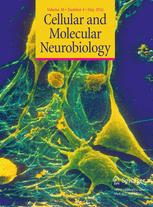 A chair of a neurobiology department in China has requested the retraction of a paper on which he was unwittingly listed as the lead and corresponding author.
A chair of a neurobiology department in China has requested the retraction of a paper on which he was unwittingly listed as the lead and corresponding author.
How could a corresponding author — you know, the person with whom the journal corresponds about the paper — be added without their consent? It seems that a fraudulent email account was involved in this case. The address listed for Cheng He, a researcher at the Second Military Medical University in Shanghai, didn’t belong to him, said a spokesperson for Springer.
According to the retraction notice for “Identification of the Interaction Between the Human Homologue of the Arabidopsis COP9 Signalosome Subunit 7a and Olig1:”
This article has been retracted by the Editor-in-Chief due to unethical conduct on part of the authors. The authors admitted they falsified authorship and submitted the article under false pretenses. This retraction is at the request of Dr. Cheng He who is not an author of this paper and does not support the content presented.
The article, published in Cellular and Molecular Neurobiology in August 2015, has not yet been indexed in Thomson Reuters Web of Science.
We asked Juan Saavedra, the editor in chief of the journal, how this paper was submitted without the corresponding author’s consent, and if there was any other “unethical conduct” in the paper. A spokesperson at Springer responded to us:
Although Dr. Cheng He was listed as the corresponding author, the email address in the article was not his.
We reached out to that email — a non-institutional address. We also contacted He via a university email address listed on another paper.
We could not find contact information for the other authors on the paper — Jiazhen Zhou and Yuanyuan Li, who are also affiliated with the Second Military Medical University and have co-authored at least one other paper with He.
We’ve seen other cases of authorship issues where researchers have scammed the system. Recently, we reported on a case of in which a co-author forged another researcher’s signature to add him to the paper. We’ve also seen a case where a co-author swapped in a new corresponding author at the last minute.
Like Retraction Watch? Consider making a tax-deductible contribution to support our growth. You can also follow us on Twitter, like us on Facebook, add us to your RSS reader, sign up on our homepage for an email every time there’s a new post, or subscribe to our new daily digest. Click here to review our Comments Policy. For a sneak peek at what we’re working on, click here.
The “corresponding author ” named on the paper (perhaps on a title page) may not be the one navigating the paper through the journals processes. In my teams, the named corresponding author is whomever has the most stable email address. The person handling the submission is whomever is most proficient dealing with the online systems.
If your work is novel and scientifically sound, why add other authors who have not participated in the work to be published and know nothing about it?… then go ahead and make them corresponding author??
Doesn’t make sense to me.